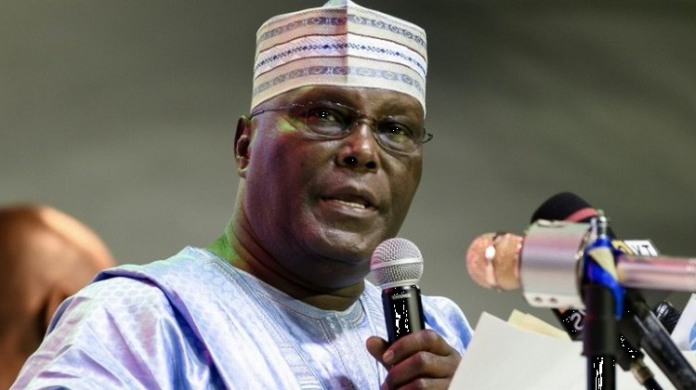Former Nigerian Vice President Atiku Abubakar presented his vision for Nigeria’s economic and social policies on Sunday, detailing strategies he would have implemented to ease economic burdens, enhance fiscal management, and restore public trust.
Addressing Nigeria’s economic struggles, Atiku stressed the importance of a phased approach to reforms, contrasting it with what he called President Bola Tinubu’s “trial-and-error economic policies.” He noted that his administration would have pursued a more structured plan to avoid destabilizing the economy and minimizing hardship.
The 2023 presidential candidate of the Peoples Democratic Party (PDP) argued that Tinubu’s administration’s abrupt removal of subsidies, currency devaluation, and sudden reforms had intensified the cost-of-living crisis. “We would have taken a step-by-step approach, ensuring that fiscal and monetary policies are aligned,” he stated, advocating gradual adjustments in exchange rates, electricity tariffs, and fuel prices to prevent economic shocks.
At the core of Atiku’s economic policy would have been the establishment of an Economic Stimulus Fund (ESF) with an initial capital of $10 billion. He explained that this fund would support Micro, Small, and Medium Enterprises (MSMEs), aiming to stimulate local production, create jobs, and drive economic growth. Atiku expressed confidence that empowering small businesses would reduce reliance on imports, mitigate unemployment, and stabilize the economy.
On security, Atiku emphasized the need to reform security institutions and improve personnel welfare. His policy document, “My Covenant With Nigerians,” outlined a “Special Presidential Welfare Initiative” to enhance the morale and efficiency of Nigeria’s security forces. He proposed using diplomacy and alternative conflict resolution methods, engaging traditional leaders and neighboring countries for joint security efforts.

Atiku also stressed the need for public sector reform to address inefficiencies and boost accountability. He proposed creating an Infrastructure Development Unit (IDU) under the presidency to expedite projects through public-private partnerships, with a target fund of $25 billion dedicated to advancing infrastructure.
Long an advocate of subsidy removal, Atiku criticized its “opaque” administration, claiming it benefited a small elite in public and private sectors. However, he emphasized a gradual approach to subsidy reform to avoid disruption, similar to methods in countries like Malaysia and Indonesia. Recalling his tenure as Vice President, he noted that he initiated a phased subsidy reduction, though subsequent administrations abandoned it.
Instead of abruptly removing subsidies, Atiku proposed reinvesting the savings into infrastructure, healthcare, and education, alongside a social protection program to shield low-income citizens from the effects of reforms.
Regarding foreign exchange, Atiku criticized the current administration’s handling of the multiple exchange rate system, arguing it primarily benefits opportunists and arbitrageurs. He advocated for a managed-floating exchange rate system, balancing stability with a market-friendly economy.
Atiku highlighted the importance of transparent and empathetic leadership, emphasizing the need for consistent communication with Nigerians. “Transparency is crucial to building public trust,” he said, noting that citizens should understand government policies and their intended benefits. He argued that reforms should be coupled with robust social protection programs to safeguard vulnerable populations, rather than relying on “a palliative economy.”
Offering his ideas as potential solutions rather than criticisms, Atiku suggested that implementing these measures could help Nigeria overcome its economic and social challenges. “Nigerians are looking for alternatives because they need policies that work,” he stated. “While I am not the President, I hope my ideas can serve as a guide to bring relief to the Nigerian people.”




